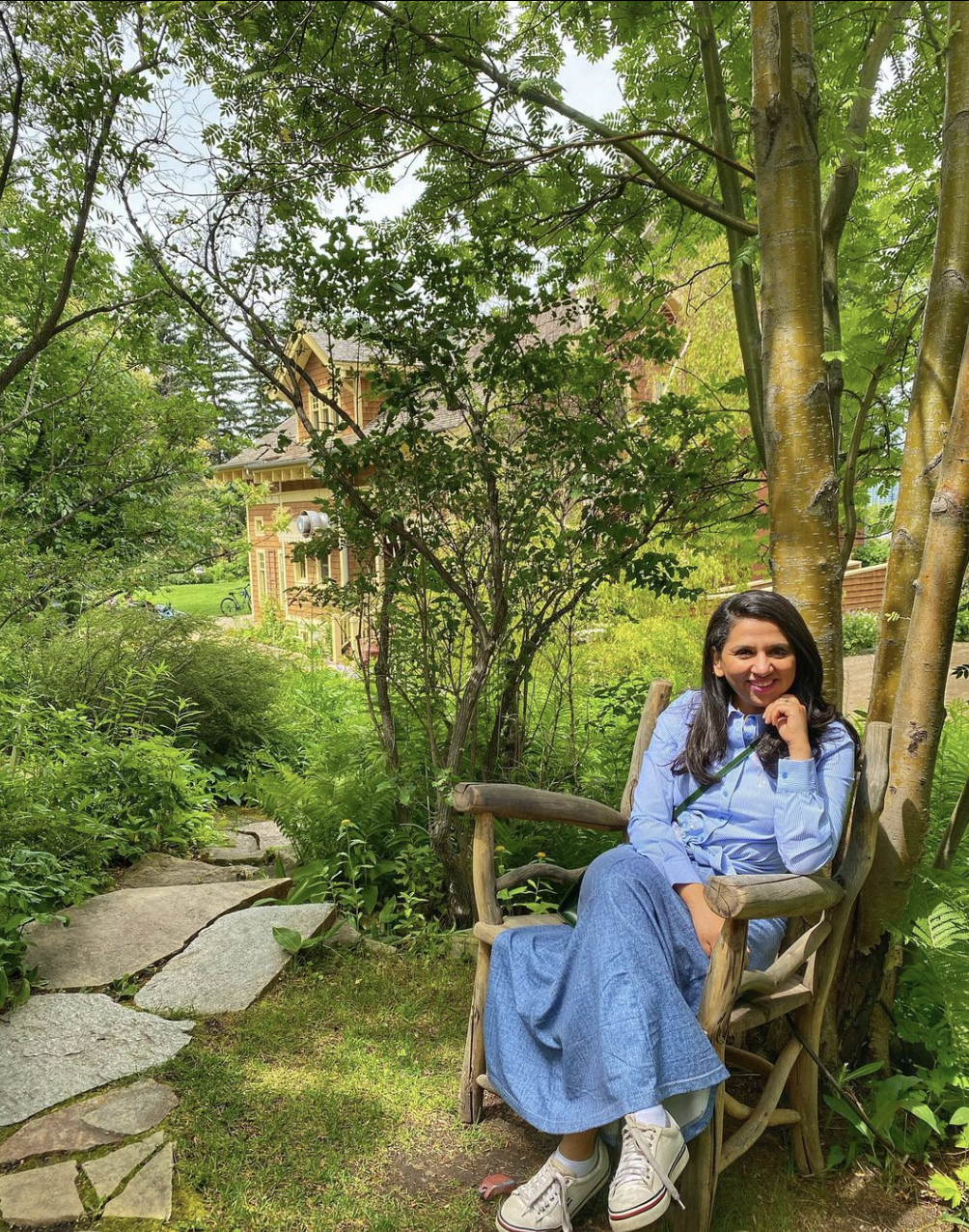I was always an anxious child, but that was brushed aside as my “nature”, not due to any malice but lack of knowledge about mental health.
I was afraid of the unknown, of uncertainties and would mask that by striving for perfection.
Anxiety is a double-edged sword: while it would swallow me hollow inside, to everyone I was excelling in studies, my career and social life.
Anxiety can look like struggling to make a decision, loose sleep and appetite in the fear of failure and worry about being anything less than the “best”.
I tried to seek psychological help in Pakistan a few times in my mid 20s but could never continue due to lack of motivation and a good match with the therapist.
The only change comes when you yourself want to change and a good support/resource system also helps.
Fast forward many years later, I was 33 and a mother in Canada and went for my annual checkup. My GP noted a drop in weight from the last visit, and I told her casually that this always happens when I’m trying to make some decisions: I loose appetite.
She looked concerned and I told her it’s extremely normal for me and has been this way forever, (though getting progressively intense). When she asked me what decisions I was struggling with and I shared that it was deciding a preschool for my daughter, my GP was visibly more concerned.
She informed me kindly that these are everyday decisions, part of adult life and shouldn’t affect me in this way.
Guided by my GP I started a long journey with my mental health. Jaffar was a contractor at that time and we did not have heath benefits.
I was lucky that in Alberta mental health help is available for free (with a wait time).
Explaining my South Asian upbringing and values to a Caucasian therapist was a whole new challenge.
1. Finances: Therapy is expensive and we could not afford the sessions without health benefits (which we didn’t have). My GP guided me through Alberta’s public health system but I was passed from one program to another and faced long wait times.
It’s easy to slip through the system. You need to have the will yourself and a support system to keep continuing.
2. Time: Therapy is a long process and takes months if not years for results. You need to show up for your sessions, do the work in between and stay consistent.
3. Finding a program and a therapist that works for you: During the course of my most recent mental health journey, I met 4 professionals. One was a behavioural counsellor at my GP’s practice, another a psychiatrist at a women’s health centre (because I was pregnant with Hussein by then), third a psychologist specializing in mental health for pregnant and postpartum women and fourth a behavioural psychologist part of an amazing provincial program (that had a 1.5 years wait list). I did not connect to them all till eventually I did with one.
4. Cultural context matters in therapy: Because I was lucky to have access to programs offered for free, we spent a long time going over the norms and assumptions I grew up with. This was back in 2014. One of the great things in recent years is that there are many online programs available, where you can connect with someone from your own back ground.
5. Your own fears: The irony of my anxiety hindering my fight against anxiety wasn’t lost on me. I was recommended medicines right from the start, but I feared taking them while pregnant and then breastfeeding. When I finally started them, the first few days were so tough, I wanted to give up.
You need to trust your healthcare professionals and in science.
6. Taboo: Will I be declared a “nut case” or “damaged goods”? Will I get hired if this is on my record? How will my social circle react if I share that I seek therapy? Will I be trusted with responsibility again?
As a society we need to remove the taboo by talking about mental health.
She is a psychologist herself and had explained to me early on that due to our prior relationship she can not provide professional counselling to me. She listened to me as I shared my struggles and would always guide me to the right resources. Her support was silent, relentless but non-interfering.
Her role made me realize how we must support someone around us who has mental health struggles. Here are a few suggestions:
– Listen and be available but no matter how hard you try, your loved one needs a professional who is trained for the task.
– Don’t take a loved one’s mental health struggles personally. You will only make their journey more difficult by burdening them with guilt. If your spouse, child, parents or friends have anxiety, depression or another struggle, it’s not a reflection on you. Don’t make it about you.
– Your role is to support but you can never force. This is an individual journey that someone will take when they are ready.
– Don’t suggest solutions out of goodwill especially religious ones. Leave it to the professionals. You can of course always pray yourself for your loved ones.
I can write a whole book on this topic but I will end the post for #worldmentalhealthday here with a quote that I strongly believe in:
“Therapy is the best gift you can give yourself!”
It truly changed my life and I’m so thankful for it!

